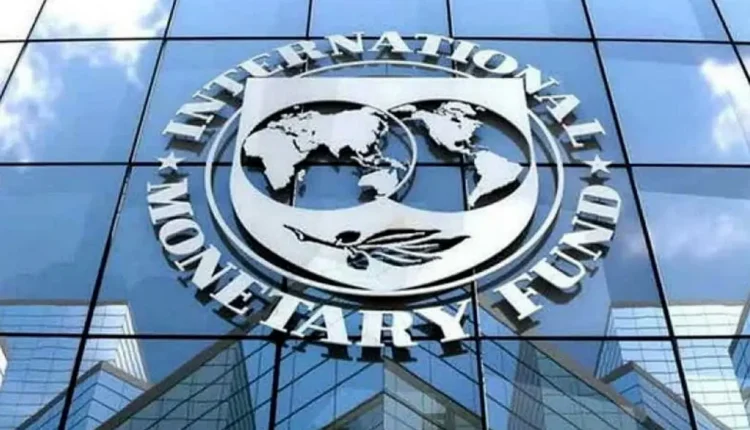The International Monetary Fund (IMF) has issued a stark warning about the growing threat of cyberattacks to global financial stability.
According to a recent report, the frequency and sophistication of cyberattacks have surged, posing a significant risk to the financial sector, which is heavily reliant on sensitive data and complex transactions.
The IMF highlights that the financial sector is particularly vulnerable to cyber threats, given the nature of its operations. Financial institutions manage vast amounts of sensitive data and facilitate numerous transactions daily, making them prime targets for cybercriminals.
The potential for extreme losses from these attacks is on the rise, and the consequences for affected institutions can be severe.
A successful cyberattack can lead to several detrimental outcomes for financial institutions. Funding challenges can arise as trust in the institution’s security measures wanes.
Reputational damage is almost inevitable, which can deter clients and investors. In extreme cases, cyberattacks can push institutions towards insolvency. The broader financial sector is also at risk, as major cyberattacks can undermine confidence in the entire system, disrupt critical services, and have cascading effects on other sectors.
Experts underscore the urgency of addressing these vulnerabilities to safeguard the stability of the global financial system. Strengthening cybersecurity measures and enhancing the resilience of financial institutions are essential steps in mitigating these risks. As cyber threats continue to evolve, proactive and robust defenses are crucial to maintaining confidence and stability in the financial sector.
Extreme Losses
In the past two decades, nearly one-fifth of reported cyber incidents have affected the global financial sector, causing $12 billion in direct losses to financial firms, according to the IMF’s Global Financial Stability Report. Since 2020, direct losses amounted to an estimated $2.5 billion.
Akshay Joshi, the Head of Industry and Partnerships at the World Economic Forum’s Centre for Cybersecurity said “While largely recognized as leaders from a cyber maturity standpoint, financial institutions are as vulnerable to steady increase in the frequency and sophistication of cyberattacks as any other sector”.
The IMF report added that banks are particularly targeted and that loss figures are likely much higher when indirect losses and reputational damage are considered.
“Cyber incidents are a key operational risk that could threaten financial institutions’ operational resilience and adversely affect overall macrofinancial stability. While cyber incidents thus far have not been systemic, ongoing rapid digital transformation and technological innovation (such as artificial intelligence) and heightened global geopolitical tensions exacerbate the risk.”
The IMF’s report urges financial firms to boolster their cybersecurity capacity through efforts such as stress testing and information-sharing arrangements, among other recommendations. Moreover, the IMF calls on authorities to develop appropriate and adequate national cybersecurity strategies that are accompanied by regulatory frameworks.
“With the global financial system facing significant and growing cyber risks, policy and governance frameworks to mitigate the risks must keep pace,” the report stated.
The IMF also called for greater international cooperation around cybersecurity efforts, noting that cyberattacks often originate from outside a financial firm’s home country.
Cybersecurity Gap
For financial institutions, securing the digital ecosystems is vital, experts maintain. Yet in the wider economy there are growing inequalities between organizations that are cyber resilient and those that aren’t, according to the World Economic Forum’s Global Cybersecurity Outlook 2024 report.
While large organizations have demonstrated gains in cybersecurity, the cyber resilience of small and medium enterprises (SMEs) has declined, the report found. In fact, there has been a 30% drop in the number of SMEs maintaining a minimum viable cyber resilience level despite making up the majority of companies in many countries.
Moreover, the Forum’s report found that the disparity between the cybersecurity haves and have nots is being exacerbated by emerging technologies, with many SMEs being left behind as advanced technologies develop.
Cyber Skills Shortages
The Strategic Cybersecurity Talent Framework, a white paper from the World Economic Forum, found that efforts to meet cybersecurity objectives are being hampered by an ongoing skills shortage.
The framework found that there is a global shortage of 4 million cybersecurity professionals, with more than half of public organizations listing a lack of resources and skills as their biggest challenge to improving cyber resilience.
However, efforts are underway to mitigate the cyber skills shortage. The Forum’s Bridging the Cyber Skills Gap initiative, for instance, works to raise awareness amongst executives as well as establish processes that will help build sustainable cyber talent pipelines within organizations and across sectors.


Comments are closed.